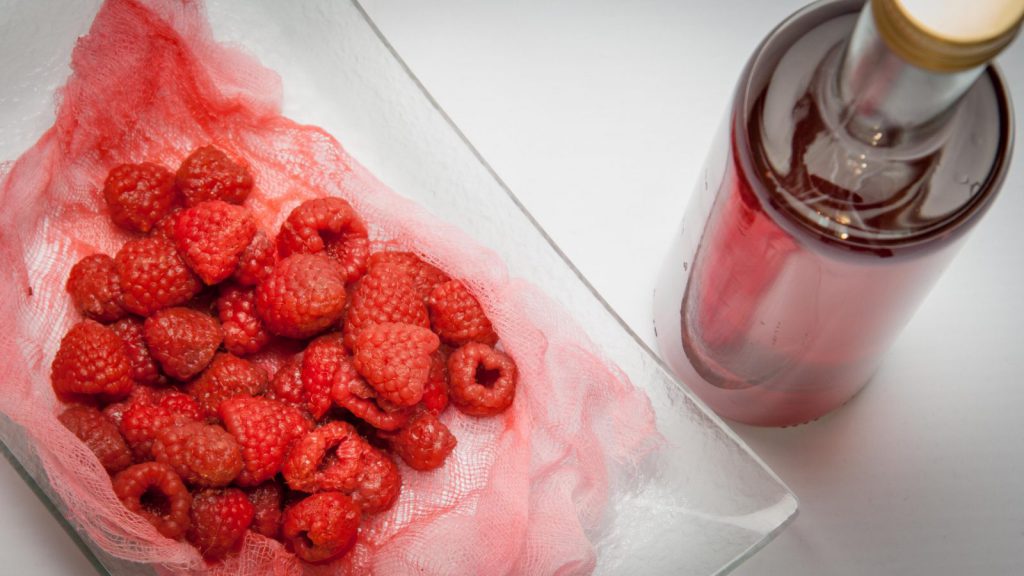Raspberry Vinegar
Flavored vinegar made with soft fruits or berries is excellent with vegetables, duck or liver. What I like to do is to deglaze the pan where I just fried a duck breast with a little bit of raspberry vinegar. It is simply devine!
Ingredients
Yields 2 cups
- 2 cups white wine vinegar
- 5 ounces red raspberries + 6 raspberries to garnish
Instructions
- In a medium, nonreactive saucepan over low heat, warm the vinegar just until it begins to give off steam (do not bring to a boil). Put the raspberries into a sterilized jar. Pour the warm vinegar over the berries and allow the mixture to cool 20 to 30 minutes to room temperature, then seal and shake the jar gently. Set the jar out of direct sunlight and away from the heat too steep for 4 days, shaking it every so often. While steeping, the vinegar will take on a raspberry hue and the fruit will lose most of its color.
- Strain the mixture through a fine sieve into a large batter bowl. Rinse the jar and return the strained vinegar to it. Rinse the bowl or saucepan. Dump the fruit and rinse the sieve. Dampen a flat-bottom coffee filter, then line the sieve with the filter and fit it over the bowl or saucepan. Pour in the vinegar a bit at a time, allowing it to drip into the receptacle. Transfer the vinegar to a bottle. If you wish, spear 6 to 8 whole raspberries on a wooden skewer and put the skewer into the container before filling. The vinegar should be ready to use immediately, with a shelf life of at least 1 year.
Video
Notes
Flavored vinegars and oils add excitement to salads, marinades, and sauces. They also make special gifts, provided a few simple precautions are followed. Of the two, flavored vinegars are easiest and safest to make. Because vinegar is high in acid, it does not support the growth of botulism bacteria. However, some vinegars may support the growth of Escherichia coli bacteria. Infused oils have the potential to support the growth of C. botulism bacteria. These products may cause great harm if not made and stored properly. By following the procedures below, both types of products can be safely prepared and used.

